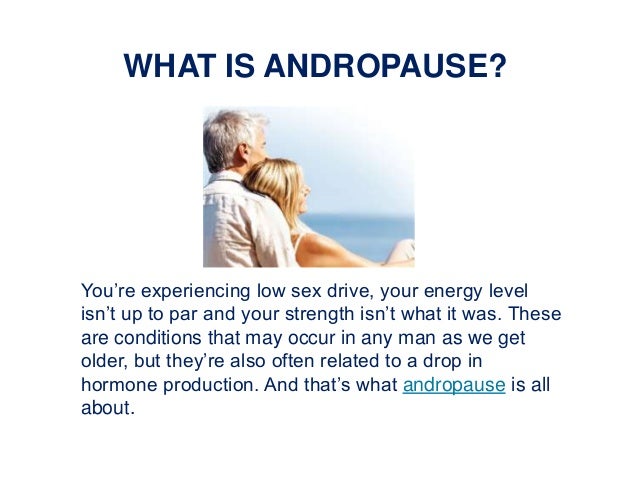
The expression "andropause" is used to refer to the condition of men who have a testosterone production decrease beyond mid-life.
Male Menopause is a subject of debate among medical circles. When it comes to ladies, menopause is associated with the termination of a biological operation - primarily, when the month-to-month menstrual cycle ceases. Likewise, an essential decrease in the hormone levels in women takes place in addition to menopause. Because of these reasons, physicians are discussing whether andropause actually exists.
When it comes to guys in their middle or senior years, weaker quantities of testosterone are being secreted by the testes. This is thought to be the underlying factors behind the occurrence of signs and symptoms of male menopause.
Men with andropause generally deal with irritation, sleep difficulties, reduced sex drive, sweating, stress and anxiety, despair, memory issues, and ED.
For the most part, erectile dysfunction can be triggered by other problems - but, testosterone shortage may be one explanation.
It is essential that males who experience symptoms connected to low production of testosterone undergo medical examination for blood work to assess testosterone output.
Other factors for having diminishing testosterone production can be a testicular disorder as well as a potential genetic anamoly.
As a therapy, hormone replacement therapy is being suggested for males with reduced levels of testosterone as well as the symptoms that come with it.
HRT could not be applicable to older men that look for therapy for their erectile dysfunction unless they actually have extremely marginal amounts of androgens. As for more youthful males with well-known hormonal shortage, it has been verified that small doses of testosterone can enhance desire in sex.
Testosterone treatment, which is additionally referred to as HRT, aims to reduce the symptoms brought about by male menopause. This method is a lifelong treatment, since testosterone deficiency is generally a permanent problem.
Testosterone replacement therapy is usually offered as a sublingual prescription, implants, or shots.
The injection of testosterone is typically given once every two weeks.
The sublingual medicines are specifically recommended to those who can't tolerate shots or implants.
The testosterone implants, which are being put under the skin of the butt cheek or abdomen work for a duration of months. The implant works by releasing testosterone straight withiin the bloodstream.
HRT, however, has possible adverse effects and threats.
With low testosterone levels, the prostate can shrink. HRT can not recover a physically diminished prostate because it does not have influence in the amount of prostate-specific antigen.
HRT might not be a reason for raised danger of prostate cancer cells for those who have normally greater testosterone production in the same age group.
On the other hand, the security of hormonal replacement as well as it's potential effects on the prostate gland, psychological , as well as cardio system still need to go through correct research. In addition, there is also a have to analyze the possible advantages of androgen treatment on the bones and muscle mass.
HRT is said to boost the threat of heart diseases, although investigation on this topic doubt. It is a well-known fact, however, that those with low testosterone production have actually been seen amongst heart attack victims. This opens the possibility that hormone replacement therapy can aid protect against cardiovascular diseases.
Older men undiagnosed with prostate gland cancer ought to likewise take caution when being applied with androgens.
Sleep apnea, or the cessation of breathing during sleep, is likewise thought about as an unusual danger associated with hormone therapy.